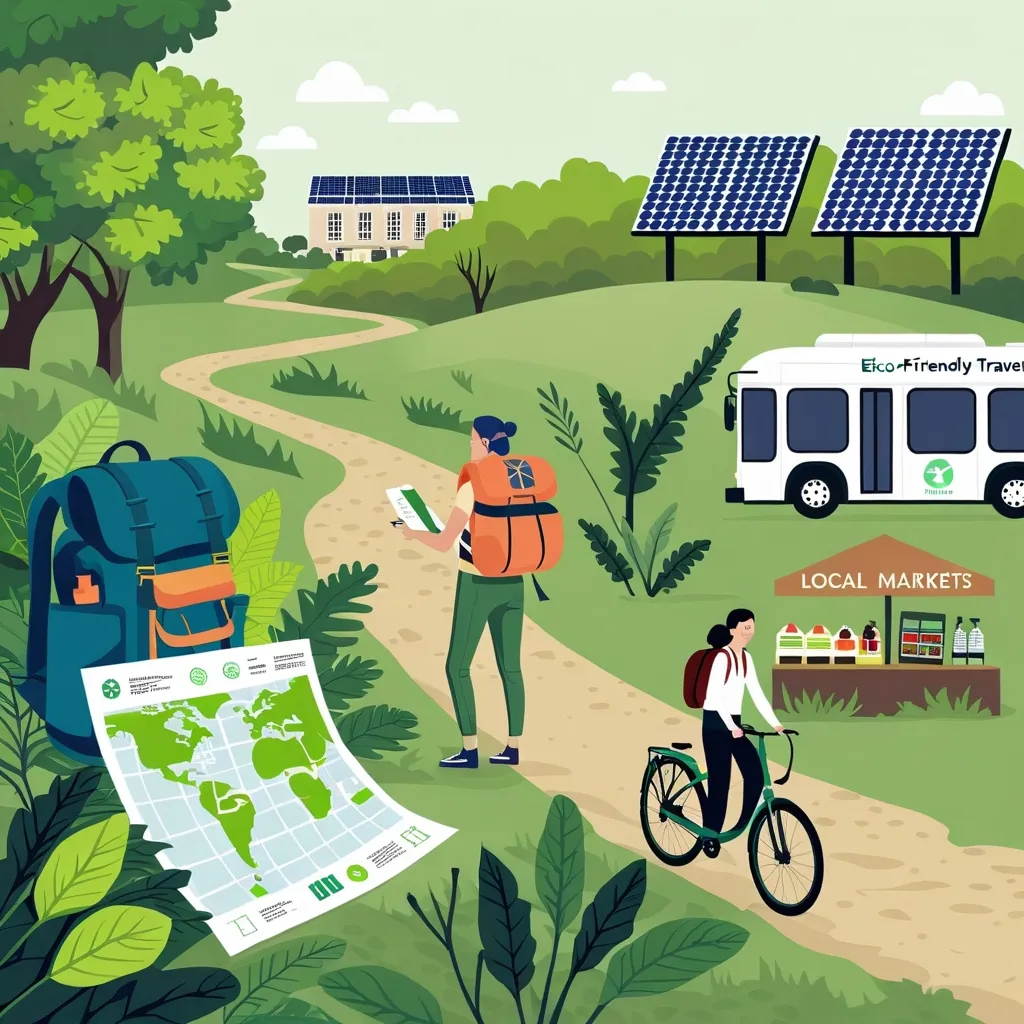Traveling is one of the most amazing ways to see new places, meet different people, and make memories that last a lifetime. But let’s face it, travel can also be pretty rough on the environment. With all the talk about climate change, it’s more important than ever to keep our eco-footprint light while we globe-trot. So, let’s dive into some super practical tips on how to keep our adventures green.
First things first, before even packing a bag, it’s a great idea to do some homework on your destination. Check out local efforts to protect the environment, see what cultural practices they have, and look at how they handle tourists. This background info helps in making choices that are kinder to the planet. Lots of travel sites and tourism boards share tips on eco-friendly activities and places to stay. Even reading reviews from fellow travelers can point you in the right direction on sustainable options.
Now, let’s talk packing. The lighter your luggage, the less fuel your transport burns. Easy, right? Pick a light suitcase and really think about what you need. This means clothes that can be worn multiple times and are easy to wash. Ditch the unnecessary packaging and go for reusable containers for toiletries. Things like a reusable water bottle and a shopping bag can save tons of plastic.
Where you choose to stay plays a big role too. Go for places that are mindful about conserving resources. Look for hotels and resorts that use green tech like solar panels or systems to recycle water. They might also serve organic, locally sourced food. These green spots often have some official certifications, so keep an eye out for those.
The way you get around matters more than you might think. Air travel is a big polluter, so if you have to fly, picking direct flights is better because takeoffs and landings use the most fuel. For shorter trips, trains or buses are greener choices. Once you’ve arrived, use public transport, walk, or rent a bike. These not only cut down emissions but also offer a better immersion in local culture. Many cities now have electric buses or trams, which is pretty cool. If you do fly, try airlines with carbon offset programs that fund eco-projects.
Choosing your activities carefully makes a difference too. Remember, lots of tourist spots, especially nature reserves, are grappling with too many visitors. So, pick eco-friendly tours and activities that respect wildlife and preserve nature. Avoid anything that exploits animals for entertainment. Trust the recommendations from recognized environmental groups to guide you to responsible fun.
Eating sustainably is another biggie. The global food system is a huge source of greenhouse gases, so when dining out, choose places that source food locally and support eco-friendly farming. Ditch single-use plastics for reusable items. When shopping for souvenirs, go for items made from sustainable materials instead of plastic. Locally made goods usually have a smaller carbon footprint than imported stuff.
Food waste is another area where you can make a difference. Carry snacks that don’t spoil, like nuts or granola bars. Keep a cooler handy for perishable items. At restaurants, order only what you can eat and pack any leftovers to go.
Tech can be a lifesaver in cutting waste. Use apps and digital documents for planning and booking your trip. Storing info on your phone means you don’t need paper copies for itineraries, boarding passes, or maps. Even digital guidebooks help slice down paper waste, offering all the details you need without lugging around a physical book.
Conserving energy is easier than you think. Simple habits like turning off lights, air conditioning, and heat when you leave your hotel room go a long way. Unplugging gadgets when they’re not in use helps too. Before leaving home, set your thermostat lower and unplug items that won’t be in use.
Carbon offsets are a great way to balance out the emissions from your trips. These programs support projects that remove or reduce carbon dioxide in the atmosphere, like planting trees or renewable energy initiatives. Do a little research to ensure the offset projects you support are legit and sustainable.
If you’re traveling by road, carpool or use ride-sharing services. Fewer cars on the road mean fewer emissions. For shorter distances, buses and trains are your eco-friends.
And hey, if you’re flying, choose economy class. It uses less space and, therefore, fewer resources. Plus, nonstop flights are better for the environment as they use less fuel overall.
Following these tips can significantly lower your carbon footprint without sacrificing the joy of travel. Pack smart, choose green stays, use eco-friendly transport, and support local communities. Small actions collectively make a huge difference in preserving the planet for future generations. Safe travels, and let’s keep it green!






